Chapter: 11th Physics : UNIT 9 : Kinetic Theory of Gases
Application of law of equipartition energy in specific heat of a gas
Application of law of equipartition energy in specific heat of a gas
Meyer’s relation CP − CV = R connects the two specific heats for one mole of an ideal gas.
Equipartition law of energy is used to calculate the value of CP − CV and the ratio between them γ = CP / CV.
Here γ is called adiabatic exponent.
i) Monatomic molecule
Average kinetic energy of a molecule
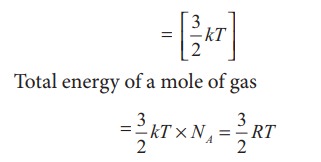
For one mole, the molar specific heat at constant volume
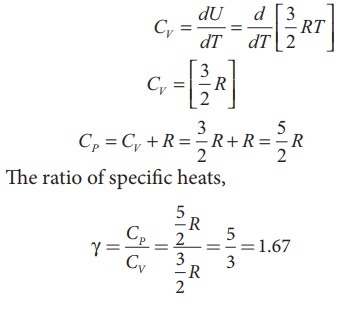
ii) Diatomic molecule
Average kinetic energy of a diatomic molecule at low temperature = 5/2kT
Total energy of one mole of gas

(Here, the total energy is purely kinetic)
For one mole Specific heat at constant volume
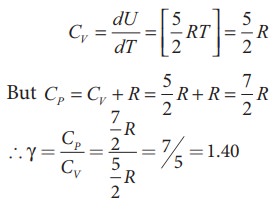
Energy of a diatomic molecule at high temperature is equal to 7/2RT
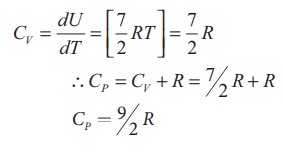
Note that the CV and CP are higher for diatomic molecules than the mono atomic molecules. It implies that to increase the temperature of diatomic gas molecules by 1°C it require more heat energy than monoatomic molecules.

iii) Triatomic molecule
a) Linear molecule
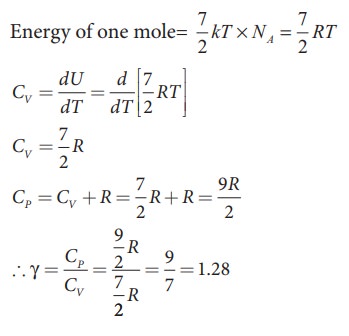
b) Non-linear molecule
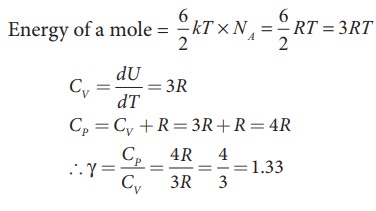
Note that according to kinetic theory model of gases the specific heat capacity at constant volume and constant pressure are independent of temperature. But in reality it is not sure. The specific heat capacity varies with the temperature.
EXAMPLE 9.5
Find the adiabatic exponent γ for mixture of μ 1 moles of monoatomic gas and μ2 moles of a diatomic gas at normal temperature.
Solution
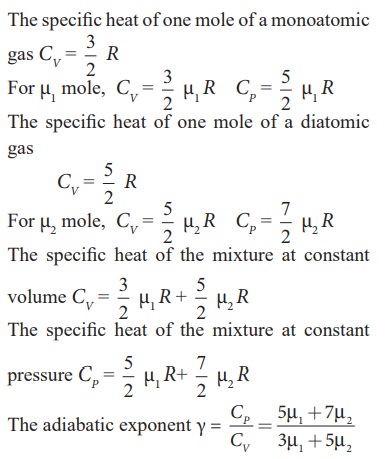
Related Topics